There are a lot of factors determining how much training Muay Thai in Thailand costs.
I’ve been fortunate enough to train Muay Thai in Thailand for over a year in total at several gyms on different trips.
In this article, I’ll break down all the costs of training in Thailand. Whether you’re planning to train once or up to a year.
I’ll also share my budget and reveal exactly how much I spend on my trips. Including gym fees, private training, and extras. But also accommodation, food, transport, and other activities.
This way you’ll get a full picture of what a trip to Thailand to train Muay Thai would cost you.
As a bonus, I’ll share my top hacks on how to lower your expenses in Thailand, so you can get more bang for your buck and stay longer.
Let’s get started!
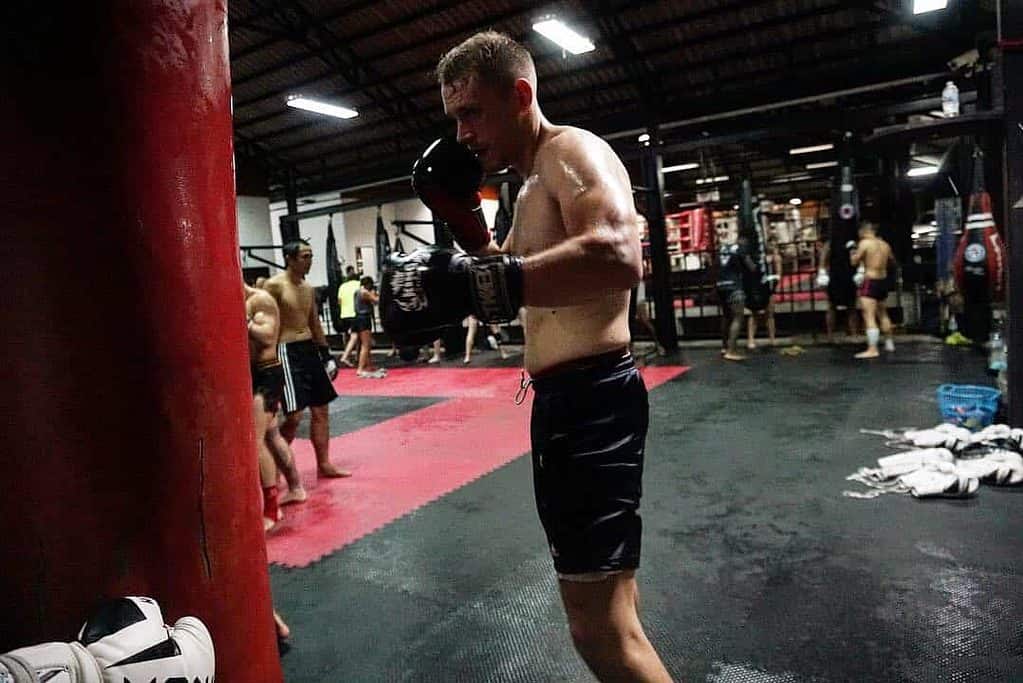
📖 Table of Contents
Muay Thai Gyms & Camps Prices in Thailand
Besides Muay Thai many gyms also offer other types of training. Such as MMA/Mixed Martial Arts, BJJ/Brazilian Jiu-Jitsu, Yoga, Fitness, Crossfit, and more. And often access to Fitness facilities with weights, machines, and other equipment.
The price models are very different. Sometimes you get access to all the training and facilities. Other times you pay for it individually.
Beware that the prices I present are realistic estimates. You can find outliners which are cheaper or more expensive.
Only Training
| Time | Price (THB) | Price |
| Daily | 400 – 500 | $10 – 15 |
| Weekly | 2,000 – 4,000 | $60 – 120 |
| Monthly | 7,500 – 12,500 | $220 – 370 |
| 3-Months | 20,000 – 32,500 | $590 – 965 |
| Private (1 hour) | 500 – 1,000 | $15 – 30 |
📌 TIP: At some Muay Thai gyms, you can also save money if you “only” train once per day. Or buy sessions in packs (of 10 x for example) if prefer flexibility and plan on training more sporadically.
Training + On-Site Accommodation
| Time | Price (THB) | Price |
| Daily | 600 – 2,400 | $20 – 70 |
| Weekly | 4,200 – 14,000 | $125 – 415 |
| Monthly | 12,500 – 52,500 | $370 – 1,560 |
| 3-Months | 36,800 – 154,500 | $1,090 – 4,580 |
| Private (1 hour) | 500 – 1,000 | $15 – 30 |
📌 TIP: Be aware that including accommodation isn’t always the best or cheapest option. Even if you buy a package with a gym. I explain how to find the right accommodation near any gym in Thailand in this other guide of mine.
My 1-Month Budget When Training Muay Thai in Thailand
Now it’s time to put the cards on the table and reveal my budget. Besides training, I’m also a big fan of eating, partying, and spoiling myself when I’m in Thailand.
| Monthly Expenses | Monthly Budget |
| Food & drinks | $415 |
| Accommodation (including utilities) | $390 |
| Party & activities | $290 |
| Training (Muay Thai and gym) | $220 |
| Motorbike rental (usually a Honda Click 125) | $135 |
| Random (personal hygiene, gas, and others) | $70 |
| Massages (weekly 1-hour foot massages) | $40 |
| Laundry | $30 |
| Barber | $10 |
| In total = | $1,680 per month |
| Monthly Extras | |
| Travel Insurance (covering Muay Thai) | $70 |
| SIM card (local) | $10 |
| Travel credit card | $10 |
| In total (with extras) = | $1,770 per month |
📌 TIP: While you could do this cheaper, you could also do it much more expensive. A good rule of thumb is around $1,500 a month is enough to live comfortably while training Muay Thai in Thailand if you limit your partying (excluding the extras like in my example above). I also usually spend $60 to extend my visa for 30 days when visiting for longer than 1-2 months. This is without taking into consideration that gym fees, motorbike rental, and accommodation often get cheaper the longer you stay. And since you only pay for flight tickets once, your return on them is bigger the longer you stay.

Can You Buy Recurring Meal-plans From the Gyms?
Sometimes you can, but it’s something you should give some thought to before committing to it.
Pre-paying for food means you have to eat one or more meals at the gym. And most likely from a limited selection depending on the place.
It might be fine if you’re staying for a shorter period, but for a longer time, you increase the risk of regretting it.
Food is already super cheap in Thailand (especially local food), so chances are the money you’ll save is limited.
And if you’re training partner wants to go eat somewhere else, you might have to skip the food you’ve already paid for to join.
I’m not saying it’s not a good option for you, but it depends on your goals.
If you want to lose weight or eat clean, and you know it helps you to have someone else in charge of your food, it might be a good option.
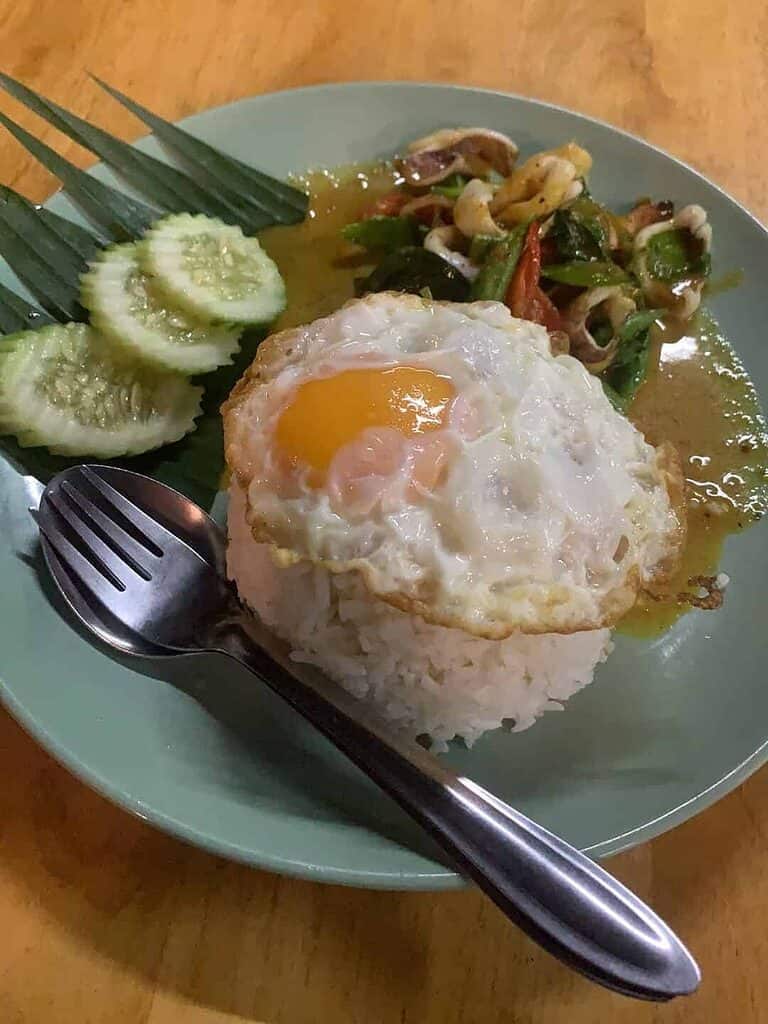
Top 7 Tips on How To Save Money in Thailand
While most of these tips mostly apply to longer trips, there are still some good tips to pick up on for the shorter ones too. At least over time if you’re planning on visiting Thailand more than once.
1. Get a Travel Credit Card Before Going to Thailand
On my first trip to Thailand, I was shocked that 5% of my spending was due to bank fees. It was a combination of exchange fees with my bank at home, and the 220 THB ($7) ATM fees you pay with every cash withdrawal in Thailand.
A travel credit card can save you a lot of money by resetting your exchange fee to 0% for a smaller fixed monthly fee.
While you won’t get rid of the ATM fee, it can still make a major difference. Especially if you’re spending a lot or are going on a longer trip.
I go more in-depth about travel credit cards on another page. Including how to take advantage of cashback & rewards programs, and save money on flight tickets.
2. Avoid the Tourist-heavy Areas
With popularity comes tourists. And with tourists comes an increase in prices.
By avoiding the most popular destinations and areas you can potentially save some dough. Especially when it comes to accommodation.
But the price of it could be a higher degree of isolation if you’re heading to the countryside away from everything.
Whether that’s a good option depends on your preferences and goals.

3. Take Advantage of Lower Gym Prices During the Low Season
Some gyms offer lower prices on training and accommodation during the low season. Which typically span from April-October.
So if you’re not locked up on any dates yet, consider going when there’s a seasonal sale.
Be aware that this will likely also result in fewer students. This means that you might have more trainers for yourself but for the price of fewer training partners (and potential friends).
4. Get Your Water From Water Filling Stations
There’s no need to waste money on buying bottled water all the time when you’re in Thailand.
You can take advantage of the many water-filling stations to get the best price and to save the environment by reducing plastic waste.
You can start by buying one or more of the 1,6 gallon (6 liters) water bottles you’ll find in most shops such as 7-Eleven or Family Mart, then use them for refills.
📌 TIP: Consider bringing a water filter too. I recommend the Grayl GeoPress bottle. I never travel to Thailand without mine 🚰 Not only do I save money on buying bottled water (especially in airports). It's also a lifesaver when you forgot to refill your stock. And it's good for the environment too.
5. Don’t Buy a Sim-card at the Airport
One of the first things you’ll likely experience if you land in one of the smaller airports in Thailand is someone trying to sell you a SIM card.
This is a normal thing in airports around the world, but they’re usually highly overpriced.
You’ll get the best price by buying directly from one of the stores of the big mobile companies such as Dtac.
Here I only paid 299 THB ($9) a month for a good chunk of data, calls, and texts.
📌 TIP: No matter where you buy a SIM-card in Thailand you'll need to bring your passport to do so (no copies).
5. Make Some of Your Meals
I know that Thai food is already cheap and even more delicious. Especially when eating where the locals do.
And if you’re only visiting Thailand for a shorter period, chances are cooking your meals isn’t an option. I wouldn’t either.
But if you’re staying for a long period, or you’re on a shoestring budget, it can be a good way to save some money.
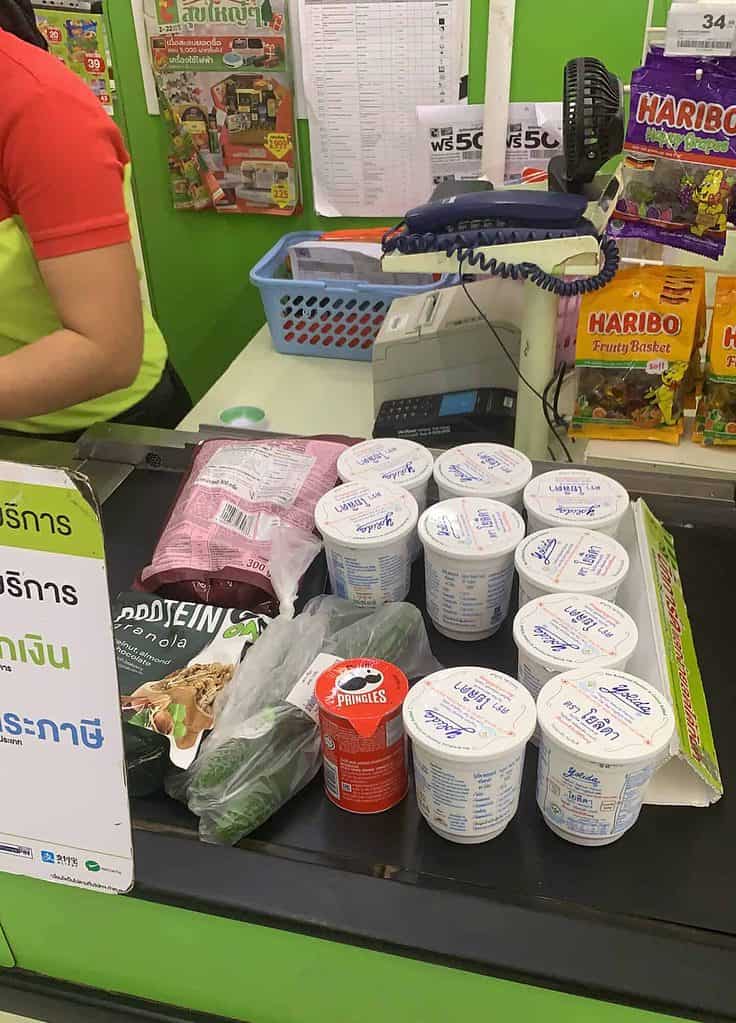
While you technically don’t need a fridge to store all types of food, it might be the bare minimum you should aim for. If not accommodation with a kitchen.
Buying groceries at local markets will give you the best prices and probably also quality. But you’ll also find a lot of supermarkets in Thailand such as Lotus (formerly known as Tesco Lotus). You can visit their website to get a glance at their collection.
6. Buy a Motorbike Instead of Renting
The idea is not to keep the motorbike forever but to sell it before you leave. This might make sense if you plan on staying for more extended periods.
But to buy a motorbike you need a trusted local to help you buy it in their name. And selling it again too.
You should be able to find a Honda Click 125 or similar in good condition for around 30,000 – 60,000 THB ($890 – 1,780). Which is one of the most popular models.
Since the monthly price of renting one is around 4,500 THB ($130), it would cost you 27,000 THB ($800) to rent for 6 months. Which is not far from the lower-end price of a used one.
Next Chapter: How To Train Muay Thai in Thailand (And Stay for up to 1 Year)
In case you haven’t already read it yet, let me share my main guide on training Muay Thai in Thailand.
Here I share everything I know about training Muay Thai in Thailand. Plus things, I wish I knew from the beginning. Chances are some of it will surprise you. Including:
- Why training in Thailand is different and what to expect
- How to find the right gym and important things to look out for
- Everything you need to prepare and consider before going
- How to stay in Thailand for more than 90 days (if you want)
- What it will cost you and tricks to save a lot of money
- And much more…


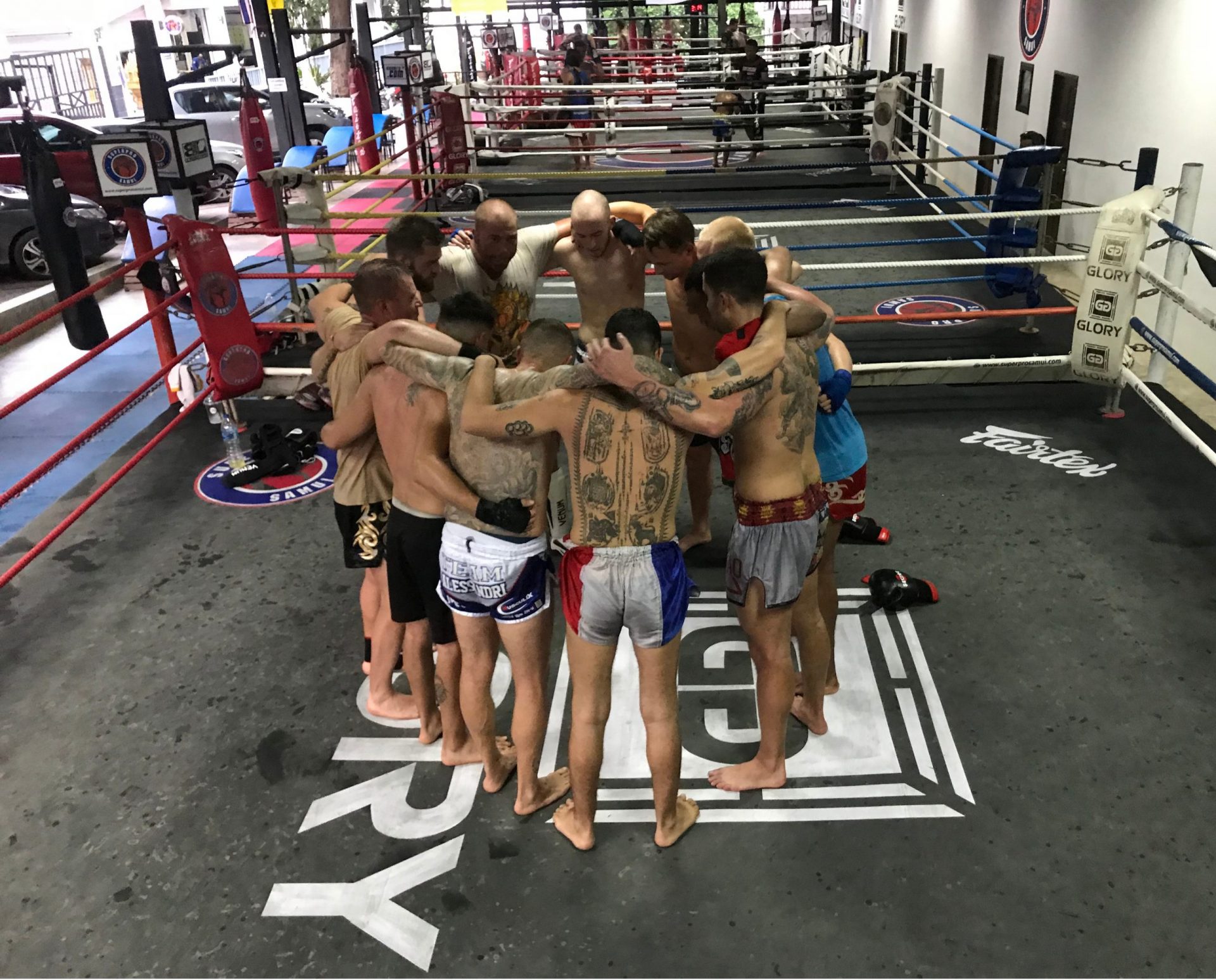
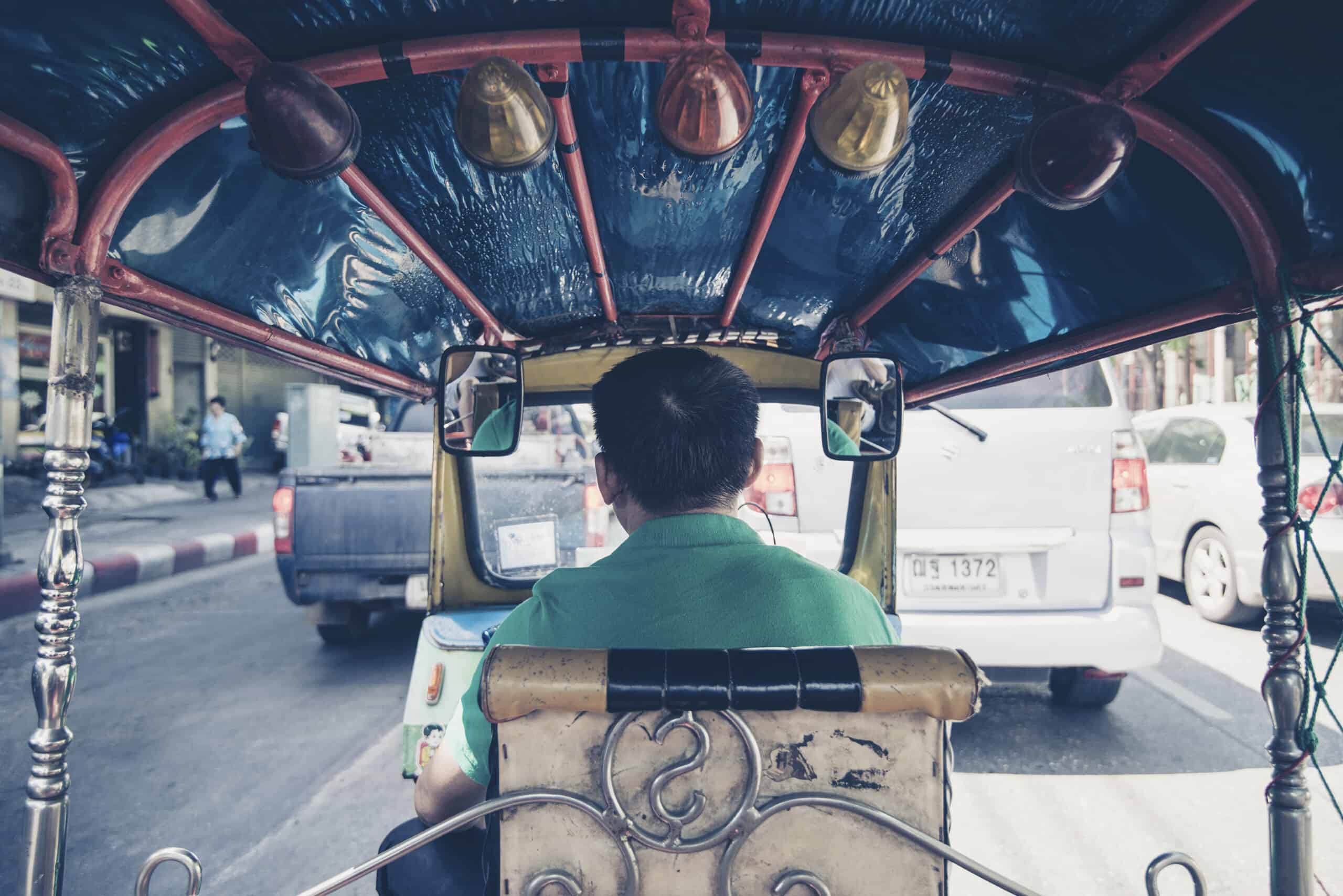
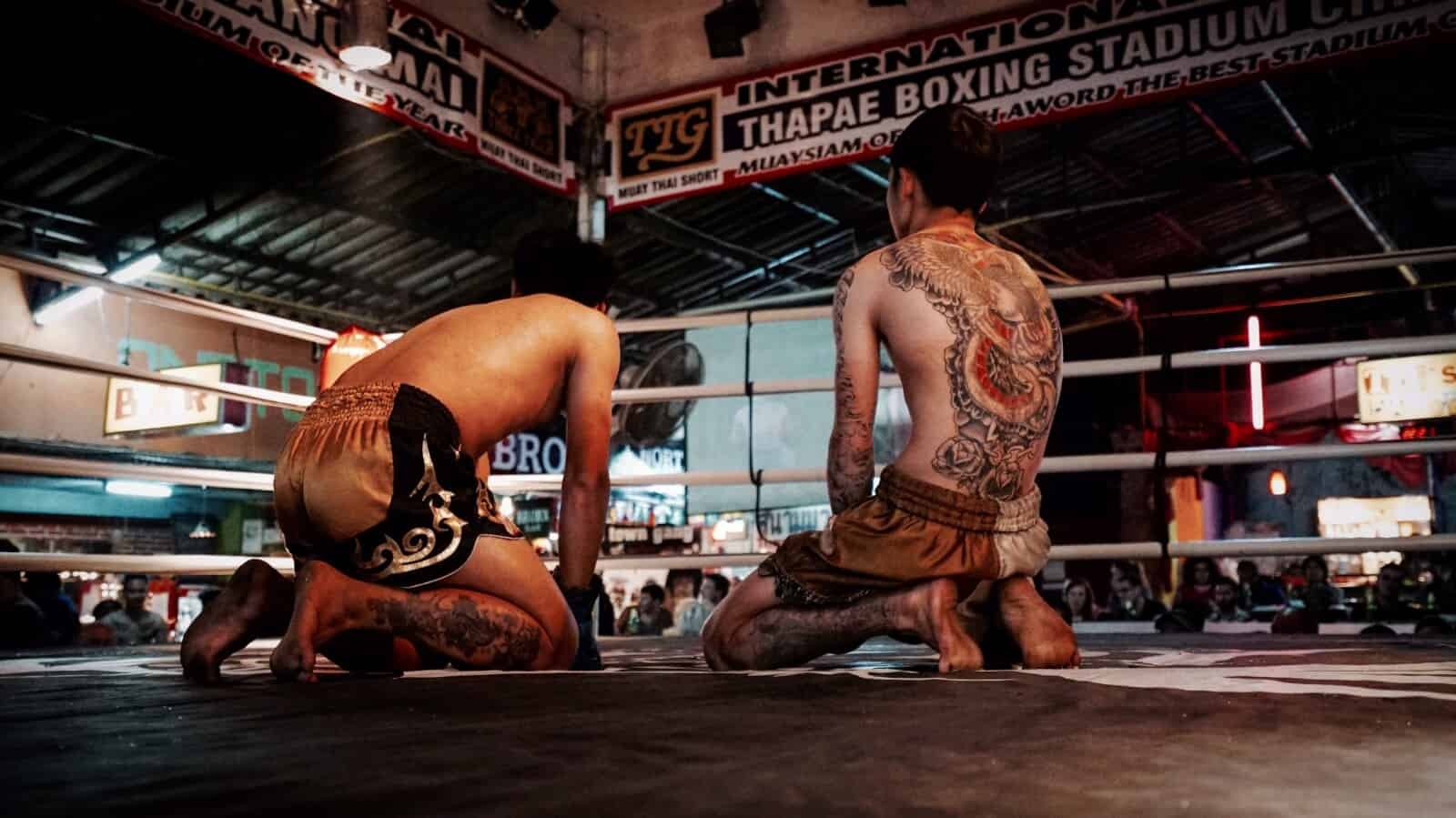

Leave a reply